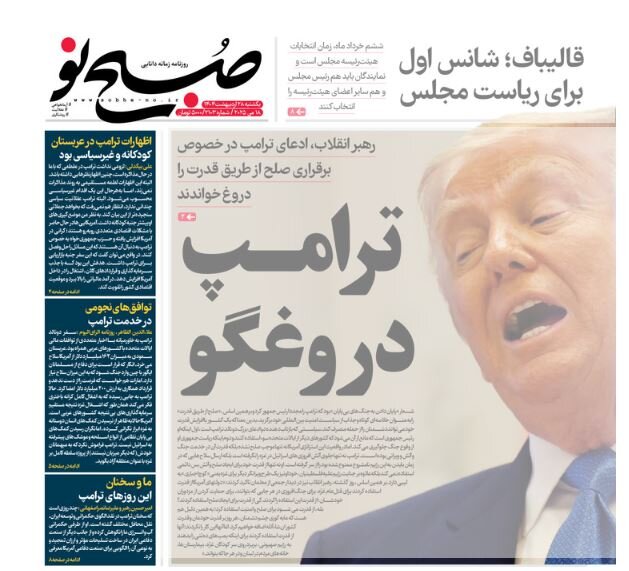Tehran-sobh-e-no writes about recent developments in Iran’s nuclear file.
According to this paper, recent developments of Iranian nuclear files are not limited to technical consultations and differences of opinion regarding the number of centrifuges. This development needs to be analyzed within geopolitical and multi-tiered contexts, which are different actors examining Iran’s files with a range of benefits and calculations, from the US to Europe, to the Persian Gulf countries, and even China and Russia. The nod to the Iranian agreement may be an attempt to neutralize the “Iranphobia” project and reconstruct Tehran’s image as a flexible actor. Given the legal and political complexity of reviving the JCPOA entirely in the current structure, many analysts believe that if an agreement arises it will be a temporary agreement limited to “JCPOA II” or, more precisely, to the nuclear field with more practical guarantees and less obligations. This type of agreement can sigh bailouts for Iran’s economy without lifting some of the sanctions in the short term and returning to the terms of the 2015 contract entirely.
Ettelaat: Why is it difficult for Iran to negotiate with us today?
Ettelaat spoke with international affairs analyst Mehdi Zakerian about the challenging atmosphere of negotiations. He said: The fact that Americans say, “You either negotiate or we fight,” means they realised they could score the highest score in negotiations with Iran. They have laid the foundations based on negotiations to meet the demands from Iran. When the negotiating party realizes this, it undermines the other’s general support and they consider misusing it and imposes their own terms. Unfortunately, in a time when our influence in the region was high and social capital in the political system was greater than today, precious opportunities were easily lost as many people attacked the JCPOA. But now, in a situation where Iran’s status in the region has changed and the economy is in crisis, we have begun negotiations. In these circumstances, America is considered superior in itself and it is very natural to want to impose all the requirements on Iran. In any case, every country tries to benefit most for its own country and its people. The missed opportunity led Iran to negotiate with the US in difficult circumstances.
Arman-e-Melli: Contracts benefit the public
In the memo, Arman-e-Melli examined the impact of the potential nuclear agreement on Iranian society. It writes: Negotiations are underway between Iran and the US. And, as both parties say, there was a relatively positive atmosphere in the negotiations, which led the parties to talk about the possibility of an agreement in a short time. Now, the problem is the benefits people will receive when they reach a new contract. Under the current situation, international agreements between Iran and the US can undoubtedly have a major impact on society, particularly from an economic standpoint. If an agreement occurs, the value of foreign currency to the national currency RIAL will certainly decrease, resulting in an impact on the price of the goods. However, if negotiations become confused, differences between political groups increase, and in itself can pose a threat to negotiation. Furthermore, it could undermine people’s hopes of improving the economic situation.
Jam-e-Jam: The challenges and the decline in the role of three European countries
In his analysis, Jam et Jam discusses the conference of senior Iranian diplomats and three European powers (France, Germany and the UK) in Istanbul, saying: On the one hand, they are trying to maintain the spirit of the JCPOA, while on the other hand they must manage concerns about Iran’s nuclear activity. However, the impact of Europe has been diminished as the US negotiated indirectly with Iran. Europe is trying to balance maintaining the agreement with applying diplomatic pressure on Iran. However, the US position has become somewhat of a tiny role for Europe. This situation has limited the diplomatic manipulation power in Europe, creating new challenges for the foreign policy of these countries. Iran is concerned about the efforts of some political parties to apply more intense pressure in the form of snapback mechanisms, and could raise tensions to levels that are out of control. Iran has sought to pursue a diplomatic path that serves its national interests while maintaining its nuclear position.

